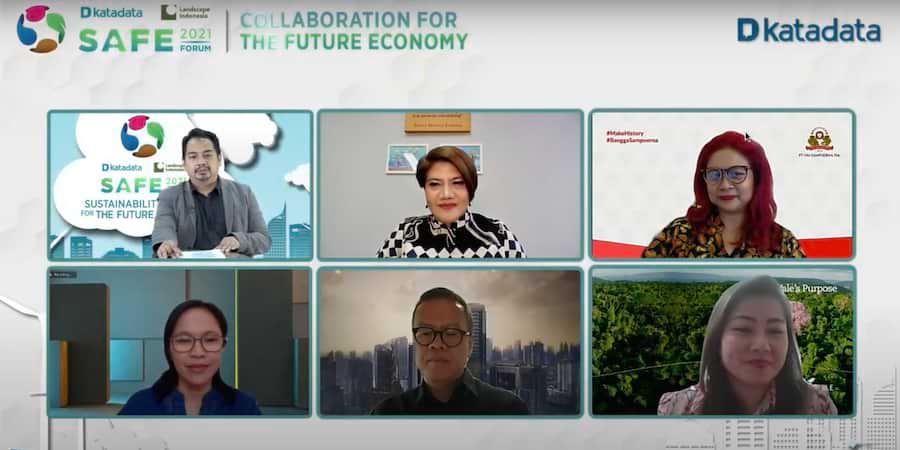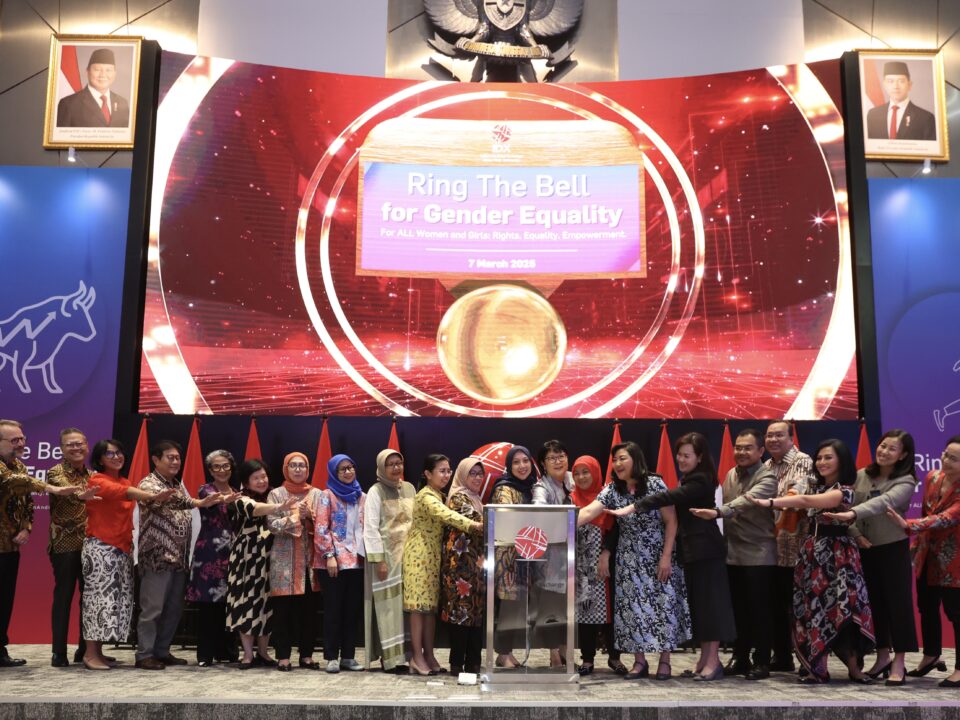
Family Friendly Practices and Policies Regarding the Covid-19 Pandemic of PT Unilever Indonesia and PT L’Oréal Indonesia
December 24, 2023
Daddy’s Wishes: My Daughter to Become a Future Leader
December 24, 2023The measurement of gender equality data is very important in companies’ reports who commit to support gender equality. This data can only be obtained if each company measures its level of gender equality.
“Measurement of data is very important for me, people might think, it’s just a report but we can’t report if there is no data. And that data can only be obtained if we measure. The principle is, if we can’t measure, we can’t manage. It must be clear what the objective is, what is to be achieved, and it can be measured and tracked so that the results can be right on target,” said Febriany Eddy, CEO of PT Vale Indonesia.
She also added that the commitment to promote gender equality was only the beginning. There are still many processes that need to be carried out by the company to achieve it, from commitment, cultural transformation to work plans.
“Starting from our commitment, we started with corporate culture. We want to change our masculine culture to be inclusive and promote learning together. So inclusion and diversity are very important pillars to encourage and accelerate this cultural transformation. And we strive to make inclusion and diversity our corporate identity. With the tune from the top, then integrated culturally and charters emerged. Then from transit charters to norms, policies, standards, and procedures,” she explained.
PT Bank BTPN Indonesia also stated the same thing. According to Andrie Darusman, Head of Corporate Communication and DAYA, gender equality data is an added value in the 2020 sustainability report compiled by Bank BTPN.
“This is the first sustainability report that we have issued following POJK 51 rules and thank God this report received a gold rating from the Asia Sustainability Reporting Standard. And maybe we got a gold rating because of the contribution from this GEARS tool,” he said.
According to Bank BTPN’s 2020 employees composition data, there were 234 new female employees, around 37 percent, and 402 male employees or about 63 percent. Overall, the composition of Bank BTPN employees is 3,090 female employees, or 42 percent, and 4,392 male employees. Meanwhile, the ratio of females at management level and above has exceeded 37 percent.
“When you look at it across levels of responsibility, the gender composition of new and current employees is already balanced. And at the board level, it is 43 percent women, so you could say we are heading in that direction (balance). From this GEARS, we also have several key initiatives that must be carried out to achieve equality, for example, the need for training on gender equality,” he said.
Meanwhile, PT HM Sampoerna stated that sustainability is a business topic, so there needs to be encouragement from all levels of employees to achieve gender equality in the workplace.
“There is one seriousness from the management, even from our parent company, namely Phillip Morris, who has made a public statement. That is, by the end of 2022, (the ratio at) the leadership level must reach 40 percent (women). And of course, we are part of that movement too,” said Ripy Mangkoesoebroto, Director of People & Culture.
Advantages of the Company’s Annual Report
A study shows that assurance of sustainability information has become standard practice for large and medium-sized companies worldwide. Among the 250 largest companies worldwide, the trend underlying third-party guarantee of sustainability data is 71 percent.
KPMG has launched a survey on sustainability reporting since 1993. This survey provides a detailed view of global trends in sustainability reporting and offers insights for business leaders, corporate boards, and sustainability professionals.
The aim is to support those who have the responsibility to assess and prepare their organizational sustainability reports. The survey also serves as a guide for investors, asset managers, and rating agencies who are now considering sustainability or Environmental, Social, and Governance (ESG) information into the assessment of company performance and risks.
IBCWE Executive Director Maya Juwita said the KPMG survey shows that the United Nations Sustainable Development Goals (UN SDGs) have resonated strongly with businesses since their launch in 2015. In addition, their impact on reporting has increased significantly between 2017 and 2020.
“Greater pressure on companies from stakeholders, including investors and peers, to be more transparent on issues such as supply chain impacts, labor standards, and diversity including gender may have influenced this jump in reporting. It is also likely that more companies now have a better understanding of the SDGs and feel more comfortable dealing with them in their sustainability reporting,” she said.
Maya also explained, based on the 2019 Pipeline: Equity for All Report, every 10 percent improvement of gender equality in the workplace, the company revenue increases by 1-2 percent. The study included 4,161 companies in 29 countries. In addition, the McKinsey & Company: Diversity Wins Report in 2020 also states that companies that implement gender equality in management have 28 percent better financial performance than other companies.
As many as 77 percent of companies in Indonesia have agreed to implement gender diversity. That number is more than any other company in the Asia Pacific. Maya said, many companies in Indonesia have internal programs to improve gender equality.
“Indeed, most of them are global companies with branches in Indonesia. However, we hope that the company can set an example for local companies in implementing gender equality in the workplace. Because it indirectly contributes to increasing company revenue,” said Maya in the 2021 SAFE Forum webinar held by Katadata, Thursday (26/8/2021) during the Achieving Sustainability Through Internal Capability session.
The Chairperson of the IBCWE Board of Trustees, Debby Alishinta, said that realizing gender equality in the workplace is a big challenge. Therefore, government support and company advocacy are needed so that it is expected to increase women’s participation in companies.
The Minister of Women’s Empowerment and Child Protection (PPPA) I Gusti Ayu Bintang Darmawati said that women are a group that is vulnerable to social constructions that are knee-deep in a patriarchal culture which can lead to stigmatization, stereotypes, double burdens, and gender-based violence.
Bintang said, women are half the power of human resources in Indonesia. Of this number, 70 percent are in the productive age.
“Women’s labor force participation rate or LFPR is also still far behind compared to men, namely 53 percent to 82 percent. In addition, there is still a wage gap between female and male workers,” she explained.
Bintang added, increasing women’s LFPR in the workplace can contribute to Gross Domestic Product. She said, if LFPR increased by 3 percent, in 2025 Indonesia’s Gross Domestic Product could increase to 135 billion US dollars.
Watch the broadcast at Katadata Youtube Channel.





